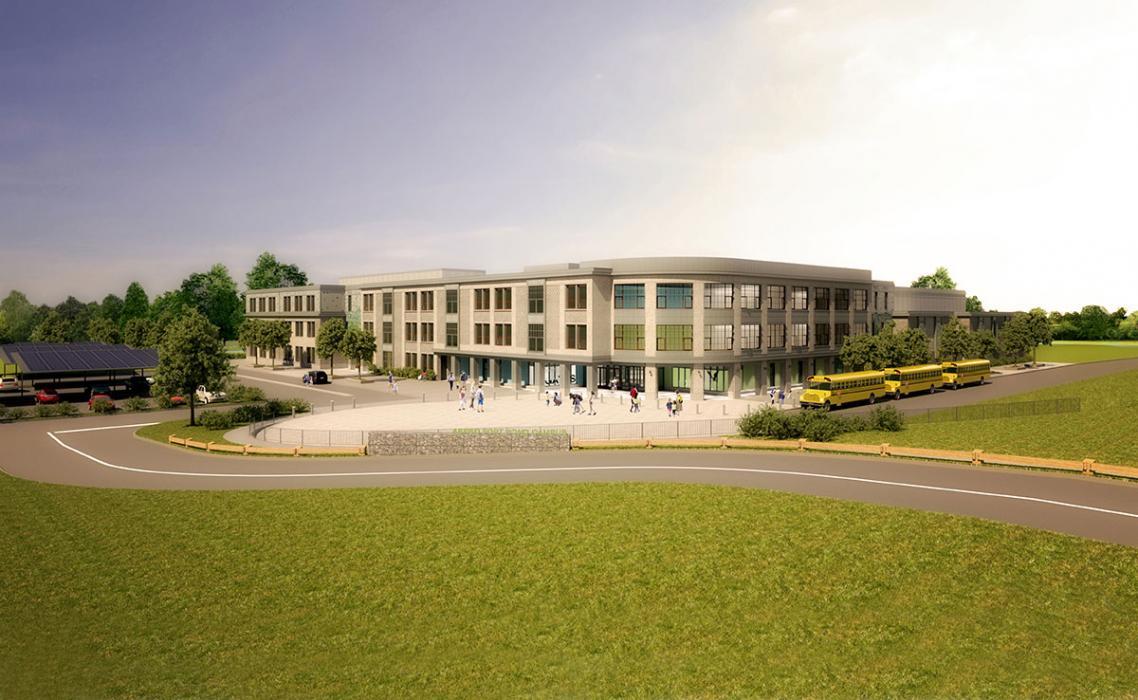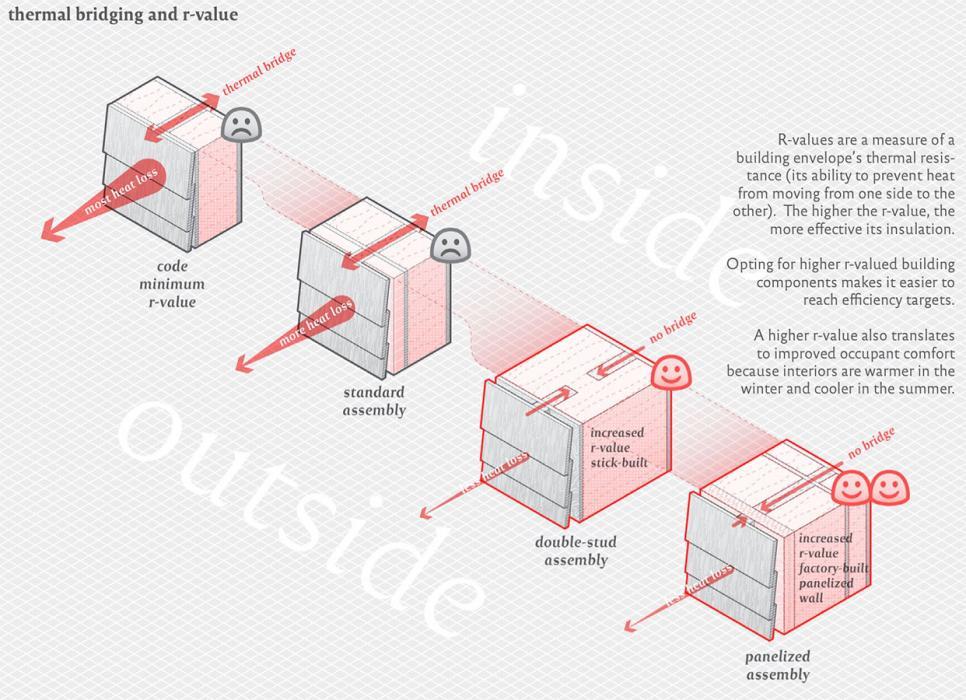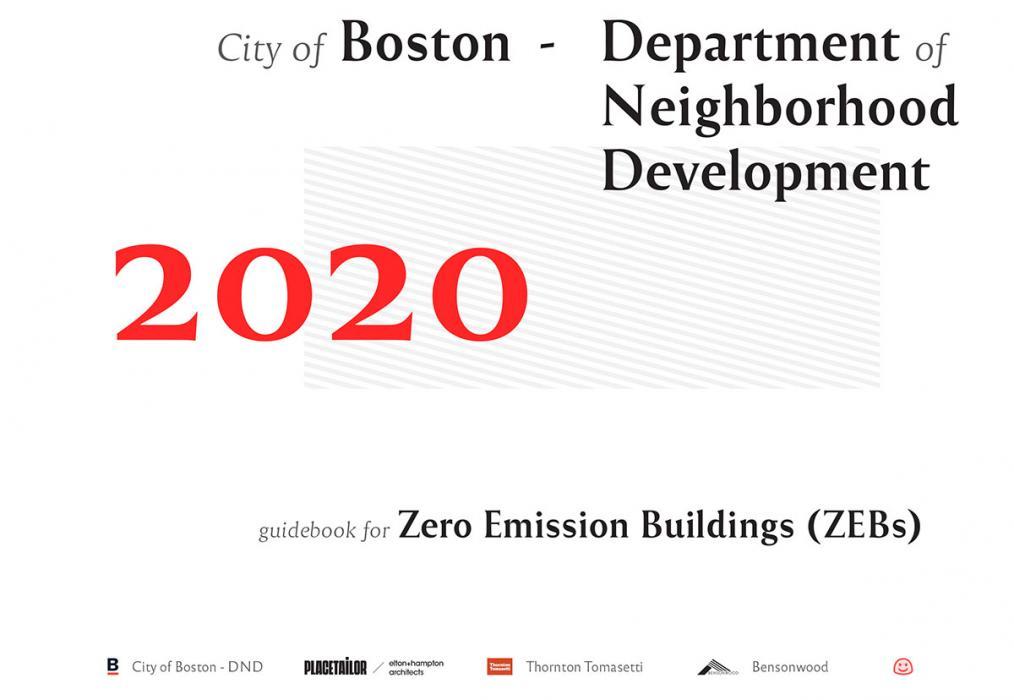Massachusetts Stretch Code & Specialized Code
The state's new 10th edition Building Energy Code – including the Stretch Code and Specialized Code – will become law in 2023. Here's how we can help.
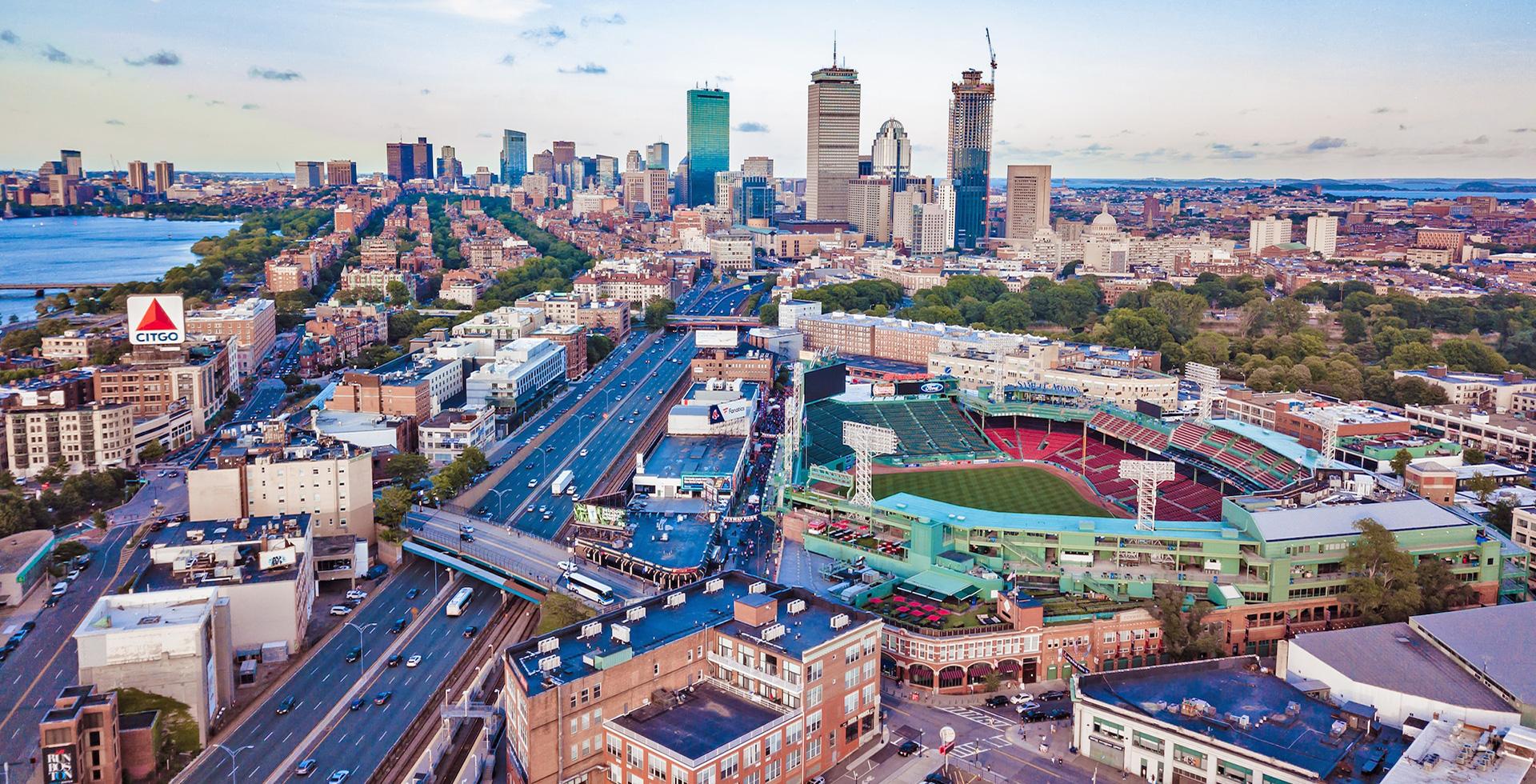 Todd Kent/Unsplash
Todd Kent/Unsplash
Overview
The Commonwealth of Massachusetts aims to reduce statewide greenhouse gas (GHG) emissions by 50 percent by 2030 and achieve net-zero emissions by 2050. Buildings account for nearly 40 percent of GHG emissions in the U.S. and play an integral role in Massachusetts' decarbonization efforts. The new 10th Edition Stretch Code and Specialized Code present new and ambitious targets for envelope thermal performance, energy efficiency and electrification. The code affects new construction and building renovation projects in both the commercial and residential sectors. With the increased levels of performance, code requirements are no longer an afterthought; they're driving design.
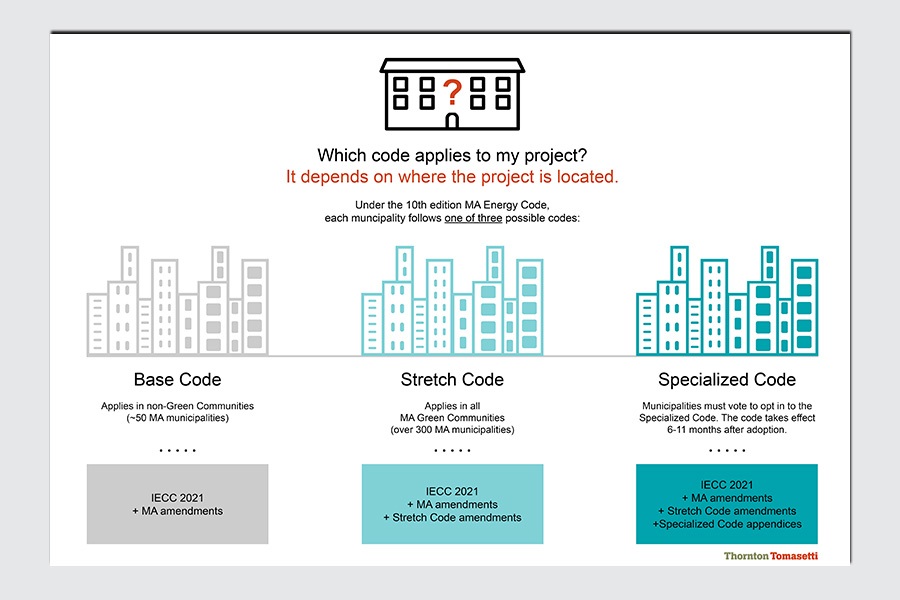
Three Tiers of the Energy Code
The 10th edition of the Massachusetts Building Energy Code presents three tiers of energy code requirements: the Base Code, the Stretch Code, and the opt-in Specialized Code. The Stretch Code applies in all municipalities that are Green Communities. Municipalities that are not part of the Green Communities program follow the Base Code. The Specialized Code requires separate adoption by a municipality.
The new regulations appear in 225 CMR 22.00, covering residential low-rise construction, and 225 CMR 23.00, covering commercial and all other construction (including most multifamily).
Specialized Code
Communities may choose to opt into the Specialized Code in addition to the Stretch Code. The Specialized Code requires that projects meet additional building electrification and on-site renewable energy criteria. Brookline, Cambridge, Newton, Somerville and Watertown have already adopted the Specialized Code; others are soon to come.
Energy Modeling
Five energy performance pathways are presented in the Stretch Code. Depending on a project’s size and type, it will be required to follow the prescriptive pathway, targeted performance (thermal energy demand intensity or TEDI) pathway, relative performance pathway, Passive House certification, or HERS pathway.
Most large commercial projects that are not labs will be required to either meet TEDI requirements or achieve Passive House certification.
Most projects will require an energy model to demonstrate compliance with the Stretch Code. Regardless of the pathway, meeting the new energy-efficiency requirements is challenging, and design-assist modeling is highly recommended to ensure the design team is well-informed and the project is set up to succeed from the start.
Envelope Backstop Calculation
All-glass buildings are becoming a thing of the past in Massachusetts. Under the 10th edition Stretch Code, building envelopes are required to meet ambitious thermal performance targets. The requirements apply to the above-grade vertical building envelope and include prescribed U-factor targets for vision glass and area-weighted U-factor targets for the full assembly. The full envelope's thermal performance is evaluated using the component performance alternative, a.k.a. envelope backstop calculation. These calculations must be submitted to the Massachusetts Department of Energy Resources (DOER) as part of the building permit submission.
Related Municipal Regulations
Many municipalities throughout Massachusetts have established their own building decarbonization policies, such as Boston’s Zero Net Carbon (ZNC) zoning and Building Emissions Reduction and Disclosure (BERDO) requirements. The 10th edition Stretch Code and Specialized Code, in most cases, will help projects meet these municipal regulatory and zoning requirements.
How We Can Help
Thornton Tomasetti’s Sustainability practice provides guidance to property owners, developers and design teams on all the new requirements in the 10th Edition Stretch Code and Specialized Code. We have expertise in energy modeling, Passive House consulting, sustainability consulting and green building certification from our diverse project portfolio in Massachusetts and across the country.
Our local team of engineers and sustainability experts is ready to help with all your needs, including design assistance, energy modeling, preparing documentation for building permit, and general sustainability consulting to ensure projects will find cost-effective solutions to meet the new energy requirements.
We provide the following services related to the Massachusetts Stretch Code:
- Code-compliance energy modeling
- Decarbonization consulting
- Design-assist energy modeling
- Envelope backstop analysis
- Passive House certification consulting
- TEDI modeling
- Zero-net-carbon consulting

